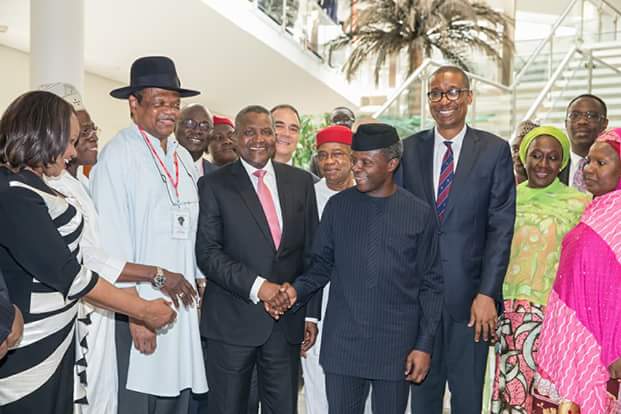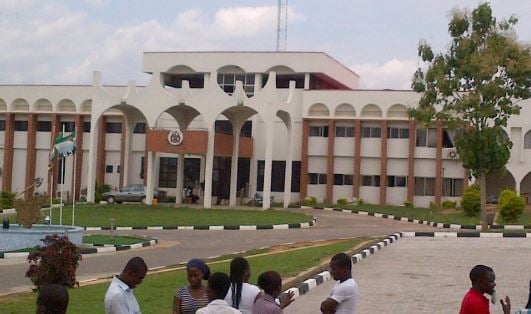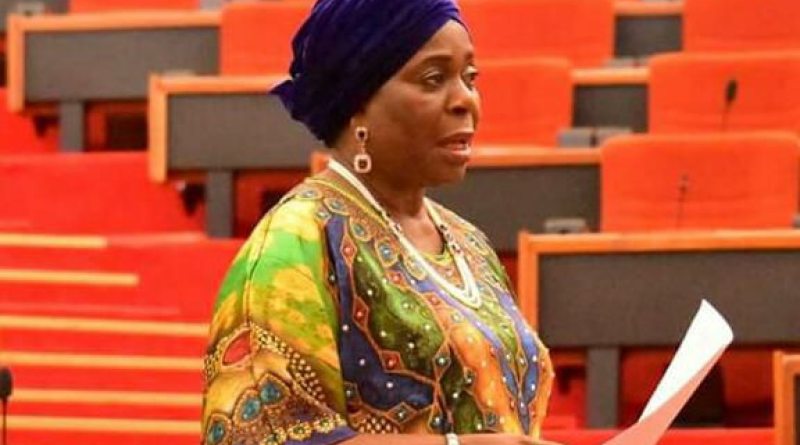Excitement filled the air in the conference room of Vice-President Yemi Osinbajo, where he announced that “President Muhammadu Buhari has approved new anti-smuggling reforms”.
It was at the recent meeting of the Nigeria Industrial Policy and Competitiveness Advisory Council (Industrial Council), chaired by the Vice President. As the deliberations of the day were being summarized to close the meeting, a member raised the urgent issue of smuggling. It had not been listed for the meeting; so were reminders from some other members of the Council that followed.
Such is the sense of urgency at the Council’s meetings, where participants try to ensure that the ball is dropped. The meetings usually provide sprouts of hope and renewed confidence in the industrial sector. At the last meeting, there was news on broadband penetration, increased power supply through the use of unutilized power, as well as skills development and employment in the sugar industry.
All these are in furtherance of the main purpose of the Council, which Okechukwu Enelamah, minister of industry, trade and investment, who is one of its vice-chairmen, said is to implement critical interventions at the highest level to accelerate industrialisation.
Advertisement
He explained that: “The Council’s mandate is to assist the government in formulating policies and strategies that will enhance the performance of the industrial sector through partnerships with the private sector.”
Membership of this public-private sector partnership include Osinbajo (chairman); Enelamah (vice-chairman, public sector), Aisha Abubakar (alternate vice-chairman, public sector), Aliko Dangote (vice-chairman, private sector); and Atedo Peterside (alternate vice-Chairman, private sector).
There are nine other members from the public sector and 21 members from the private sector; with Edirin Akemu as the Programme Co-ordinator.
Advertisement
At the inauguration of the Council last year, Osinbajo said its duty is to enable Nigerians to create livelihoods for themselves.
“It is not just a patriotic duty but one that will give our country a real chance to be globally competitive in business and commerce. The Council is important because we acknowledged that partnering with the private sector is a key enabler for achieving our industrialisation targets”
Terms of reference
The broad terms of reference of the Council is to provide input to the formulation of sectoral and industrial policy, and government interventions aimed at enhancing the performance of the Nigerian industrial sector.
Advertisement
In addition, the council will provide feedback on government policies and programmes that affect the industrial sector; make recommendations, propose initiatives and bring perspectives that promote competitiveness and growth of the Nigerian industrial sector.
It will also make inputs to Nigeria’s trade negotiations and agreements with a view to ensuring that the view of industry and industrialisation targets are taken into cognisance.
It is to also periodically review performance, trends and issues within the industrial sector, with a view to proposing interventions to enable investments and competitiveness.
Other terms of reference include proposing targets for national industrial output and investments across major industrial sectors; tracking the progress made on specific public and private sector initiatives aimed at transforming the industrial sector and meeting its industrialisation targets; and serving as ambassadors of the industrial sector and as a platform to facilitate communication on current and emerging issues affecting industry, and ensuring regular interaction between government and stakeholders in the industrial sector.
Advertisement
Thematic areas
The Industrial Council is focused on six thematic areas; each area is driven by a sub-committee with members from the public and private sectors. The areas are critical infrastructure; skills & capacity building, policy & regulation, trade & market access, financing and engagement with state governments.
Advertisement
A high-level overview of some of the Council’s initiatives includes the following:
Fight against smuggling:
Advertisement
This intervention is aimed at implementing initiatives to minimize smuggling by 50 percent in the short to medium term. The proposed anti-smuggling initiatives and recommendations have been approved by the federal executive council and President Muhammadu Buhari.
Trade and Markets
Advertisement
The key objectives are to implement initiatives to improve access to Nigeria’s priority markets; drive 30-40 per cent increase in ICT exports; increase foreign earnings by $1bn – $4bn annually from agro-allied businesses and create 475,000 jobs.
The initiatives on which work is progressing include:
- Establishment of an ICT cluster
- Addressing sectoral issues in the cotton, textiles and garment sector; as well as those in the agro-allied sector; and heavy metals.
- Review and renegotiate Nigeria’s trade agreements with priority markets.
Skills and Capacity Building
This involves the implementation of initiatives to bridge the gap between the skills demanded by industry and supply by Nigerian education institutions in maintenance, technology and the sugar sub-sectors.
Specifically, a one-year apprenticeship programme is to be established in each of the three sectors. Already, the terms of reference with Siemens Professional Education on setting up a vocational training centre has been finalized for the maintenance programme.
Under the sugar programme, the Nigerian Sugar Development Council has entered into a partnership with the Mauritius Sugar Institute for the establishment of a Sugar Academy.
Critical Infrastructure
The Industrial Council is identifying and implementing project initiatives to differentiate, accelerate and boost power supply to industries; improve broadband penetration and road access to areas which benefit the Nigerian business community as a whole.
National Broadband Penetration: Current broadband penetration in Nigeria is 22 percent as compared to four per cent in 2012. To further improve broadband penetration, the Nigerian Communications Commission (NCC) developed a Licensing Framework and instituted a subsidy scheme to enable Infrastructure Companies (InfraCos) to roll out fibre in all the zones of the country.
Specifically, the objective is to increase broadband penetration across all geopolitical zones of the country, such that at the end of the four-year intervention, all the 774 LGAs will be provided with fibre connectivity.
That implies the deployment of at least one fibre Point of Access (PoA), with the capacity of 10 Gbps, in each LGA across the country.
In the NCC’s presentation at the last Industrial Council meeting, it stated that at its meetings with the National Economic Council and Nigerian Governors’ Forum, the Governors agreed to harmonize the right of way charges in the States with the Federal Government charge.
It has also reviewed the submission of the six licensed InfraCos relating to the Capital cost (Capex) for the project over four years, subsidy requirement, and network design.
Following the review, they were requested to submit revised financials, network design and rollout plan based on one PoA per LGA only for subsequent review.
At the end of the exercise, negotiation of percentage subsidy is to be considered for the respective zones. According to Enelamah, “based on the speed of re-submission received from the respective InfraCos and the conclusion of the subsidy agreement, it is expected that the project will kick-off before the end of 2018.
Deployment of underutilised power assets: In a move to ensure optimal use of resources, the federal government has commenced moves to deploy underutilized power assets to deliver incremental power to industrial centres and needy communities in the country.
Through the coordination of Council, the government seeks to generate additional 4.2 Gigawatts of power to the national grid in the next 12-18 months.
Towards this end, a total of 8 power projects have been selected for the critical intervention. They are the Aba Integrated Power Project; Kainji rehabilitation and expansion; power transmission; captive power projects for industry; Afam IV rehabilitation; Afam V rehabilitation; a Seplat gas facility; and Alaoji power plant.
The Council believes the Niger Delta Power Holding Company (NDPHC) brownfields are the fastest and the most cost-effective path to increased power delivery to industrial hubs and communities.
According to Edirin Akemu, the objective of the intervention is being achieved through enhanced distribution infrastructure and elimination of technical power rejection; transmission upgrades on critical path to industrial and commercial load centres; and generation optimization and maximization of NDPHC output.
Enelamah said work is ongoing on the Alaoji power plant to supply about 360MW of unutilized power to industrial centres and people in the South-East Axis of Onitsha, Aba, Nnewi and Ihiala.
He explained that only 120MW out of the 480MW of power generated by the plant is regularly utilized, so 360MW of power is available for centres willing and ready.
He said, “The end-to-end power delivery project, which is being undertaken through Public-Private Partnership ensures that generation, transmission and distribution are all aligned and simultaneously executed.”
“The beauty of this project, which is a pilot, is the optimization of resources and also that the learning from it is intended to be used to unlock up to 2GW from underutilised NDPHC power plants.”
The partners executing the project are the Federal Government (through The Transmission Company of Nigeria, Niger Delta Power Holding Company), GE Power, and Enugu Disco.
Other key issues discussed at the last meeting included the establishment of a Sugar Industry Apprenticeship Centre.
Citing the enthusiasm and energy of Council members and the results of their collaboration, Akemu believes “this is the best catalytic intervention in the industrial sector of the economy in recent times. The partnership is working well and although we may not be where we wish to be, we see our targets clearly.”
On his part, Enelamah says “: I believe that those things we are doing are producing results. Although there is still a work to be done, if you talk to manufacturers they’ll tell you they’re already seeing signs.”
Dangote says that the terms of reference set by government demonstrates the importance it has placed on interaction with the private sector.
Add a comment







